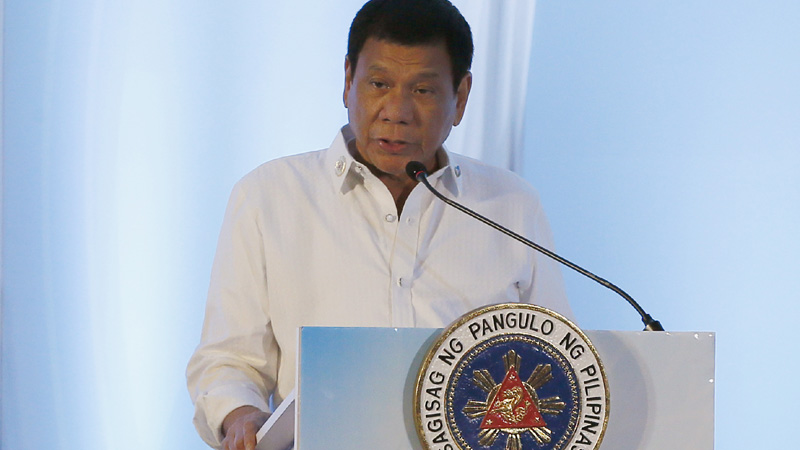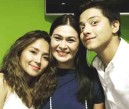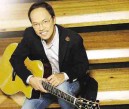RELATIONS between the Philippines and the United States have been historically stormy but close, but the arrival of a roughneck in Malacañang who says he is no fan of the Americans has brought a “new normal” to those ties and Washington is not unlikely to keep Manila at a distance in the next six years.
While China’s increasing aggressiveness in the South China Sea keeps US-Philippine security relations “indispensable,” according to Richard Heydarian, a political science professor at De La Salle University, it is clear that under the administration of President Duterte, “the United States can no longer expect the same level of strategic deference and diplomatic support” from the Philippines.
“This is the new normal in Philippine-US relations,” Heydarian wrote in a commentary published by the Asia Maritime Transparency Initiative.
Mr. Duterte’s declaration that he is adopting an independent foreign policy for the Philippines, Heydarian said, is a “brazen and audacious policy pronouncement in a profoundly pro-American society, where much of the intelligentsia and security forces feel deep affinity with the United States.”
Falling out with Obama
Mr. Duterte, who has made it clear to his supporters and opponents from the get-go that he is no ordinary politician—uncouth, brutally frank and even murderous at times—declared an independent course for the Philippines on Saturday after a spectacular falling out with US President Barack Obama that became the buzz at the Association of Southeast Asian Nations (Asean) summit in Laos last week.
It was Mr. Duterte’s maiden outing as the new leader of the Philippines and he was to meet Obama for talks on the sidelines of the summit, but he busted it by spewing “son of a bitch” in a tirade that he launched after being told as he was about to leave for Laos on Monday that the US leader would raise human rights with him during their meeting.
The White House brought down the ax: No US-Philippine meeting.
Although Mr. Duterte said he regretted his intemperate language, Obama was aloof when they met before the Asean leaders’ gala dinner on Wednesday night.
Mr. Duterte said he told Obama that he never called him a “son of a bitch” and that the US president told him, “My men will talk to you.”
Got message across
In a news conference wrapping up his last visit to Asia as US leader, Obama said he told Mr. Duterte to conduct his war on drugs “the right way.”
So Mr. Duterte, who brooks no opposition to his decisions, chose to go his own way.
Call it roughneck diplomacy or whatever, but Malacañang insisted on Sunday that Mr. Duterte was able to get a plain-spoken message across to the world.
“The most important message is [that] we have our own foreign policy to follow,” Presidential Communications Secretary Martin Andanar said on dzRB radio.
“It’s also important that the President showed other countries that we support foreign trade and calls for respect for rule of law in the Asean region,” he said.
‘Perfect’
“Perfect” is how Mr. Duterte himself described his first interaction with world leaders, including Obama.
Mr. Duterte, however, failed to muster enough support from the 10-member Asean to nudge China into respecting an international tribunal’s ruling against its claims to almost all of the South China Sea.
Critics also observed that his acerbic attitude toward the United States and the United Nations was the complete opposite of his friendliness to China, with whom he wanted bilateral talks to resolve the South China Sea dispute despite a ruling for the Philippines by the tribunal.
But European Union Ambassador to the Philippines Franz Jessen described as “interesting” the way Mr. Duterte presented his policies and views at the Asean summit.
In an open letter posted by the EU Delegation on Facebook, Jessen said the Philippines “is an important member of the international community, and the statements of its President are carefully noted.”
He said he was reading Robert A. Fulton’s 2007 book “Moroland.”
“I am well aware that it offers just one perspective of a very turbulent and difficult period, but I do believe, as President Duterte does, that we all should seek to learn from history,” he said.
Latest
Recommended
View Comments
![]()



